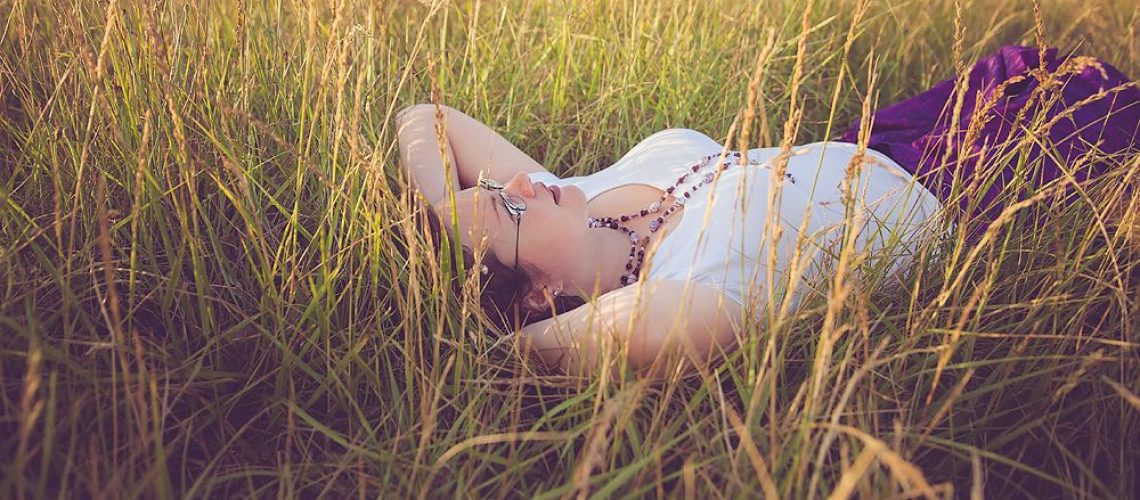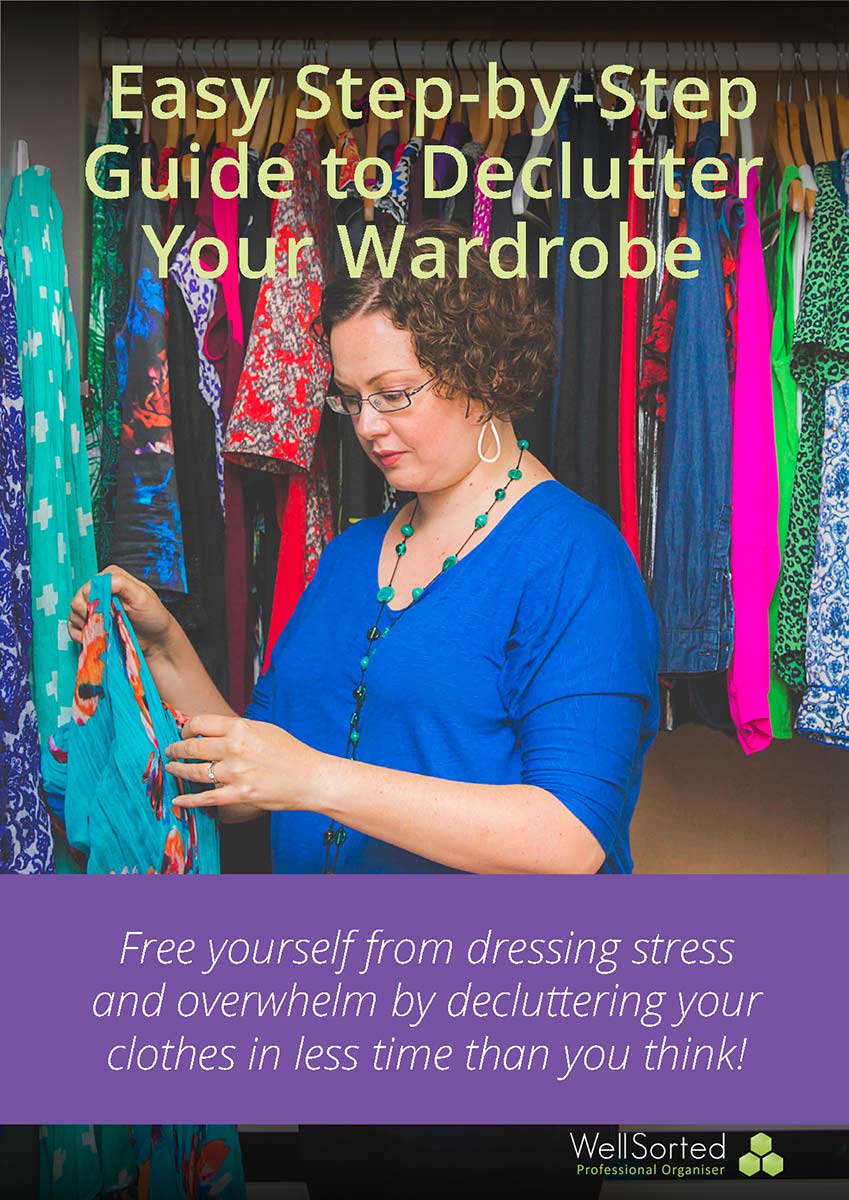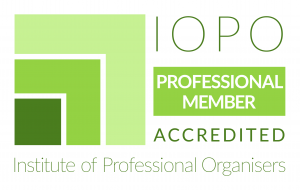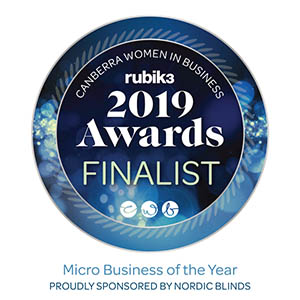It’s common to think that decluttering is just a physical process of removing unwanted and unused possessions from your home. Those that work with me know there’s much more to it than that. There’s stuff in our mind and emotional body that needs to be let go of too. Sometimes you need to declutter your mind.
During sessions with clients, I see things come up that need to be processed emotionally or discussed with a counsellor. Most times, it can be dealt with by just taking a bit of time to ponder and work through it. This blog post is about helping you to do that. If you find you need more help, please seek it out.
Tools to Declutter Your Mind
What do I do, to declutter my mind? How do I get clarity? I don’t always get this right, and to be honest, I see it as a work in progress. You have to continually work on yourself and with yourself to have that clarity. What follows are some things I’ve found useful over the years to be mindful and clear.
Journalling, Vision Boards and Gratitude
These are becoming well-known tools for mental health.
Journaling is useful to be able to look at how you feel, what your experiences are, what you’re grateful for and so on. The reason I find it so helpful is that it gives me an opportunity to reflect on the day, week or month. I get to ponder about how I’ve grown over that time, what I experienced, how I’ve changed and what I’d like to do differently.
It also allows me time to reflect on if I’m working towards my goals. (Whether they’re personal aspirations like ‘swearing less’, or more career-related, like getting a new job). If I am closer to my goals, I get to feel a sense of achievement. If not, then I can consider what’s holding me back and take steps to change this. This regular reflection allows you to become aware of ‘clutter’ floating around in your mind that needs to be ‘digested’ or dealt with.
Useful Reflection Tools
I personally have a few methods to journal and write gratitudes. Firstly, I just have a standard journal where I can shoot the breeze, and write whatever comes to mind. I also have a mini notebook for gratitude. I’ve tried apps for this but find them time-consuming so opt for a notebook instead. I like gratitude reflections as my personality is to pick apart my day in a very analytical, critical way. So gratitude writing is a great way to pull out the positives from the day. I’ve heard it referred to as a ‘favourite frame’ as well. If you could put a frame around a particular part of your day, which memories would you choose? Digesting these moments is important so that they are integrated into you – into your mind, body and spirit.
I do journaling and gratitude writing whenever I get a chance in my day or week. Beyond that, I do a weekly and monthly reflection using my Passion Planner. The Passion Planner is a paper calendar diary, that has all the usual diary stuff but has spots for reflecting (particularly for the month just passed). On a yearly basis, I use the My Shining Year Workbooks by Leonie Dawson. I use both the ‘Life’ and ‘Business’ workbooks. Over the Christmas/New Year period, I use these books to reflect on my year just gone (the Passion Planner monthly reviews help me remember). It also lets me set my intentions for the year to come. The workbook has lots of great questions and prompts to keep you thinking about where you’re headed.
I also often will do a vision board or two a year. I typically attend a visioning workshop with Think Out Loud. Dee has everything I’ll need all ready to go which makes it so easy. I love vision boards as it puts your dreams, goals and desires into a pictorial form to connect with over the year. I hang it on my office door for a daily reminder.
Psychology and outside help
With a degree in psychology, there’s no surprise that I’d be an advocate for talking to a professional to help declutter the mind and spirit. I suffer from depression, anxiety and Post Traumatic Stress Disorder so find it useful to talk to someone who understands these things.
A professional counsellor or psychologist can also coach you through the clutter in your mind surrounding personal experiences. It helps you to process things of the past and things you’re experiencing now. These sessions teach you skills and coping strategies for whatever presents at the time.
I also engage other alternative medicine or ‘guides’ to help me de-stress, and release some of the mind or body clutter. I personally have loved getting a massage, having acupuncture, doing reiki, osteopathy, coaching, body talk and Emotional Freedom Technique (EFT, also known as tapping). EFT has been so helpful for me that I got the certification to offer EFT as part of my services because I believe it is a helpful tool in decluttering.
Connection to myself
Finally, I also use forms of meditation, spiritualism and mindfulness practises to free my mind of junk.
Meditation
In the past, I was a hardcore mantra-based meditator doing two, half-hour sessions a day. I found this to be a bit too much for me and decided it was not my style of meditation. I sometimes return to that mantra though for a short burst, but definitely don’t engage in the long term sit down sessions like I used to.
Mindfulness
Now I prefer little mindfulness practises to check in regularly with myself. I do this in daily activities by bringing my attention back to what I’m doing. If I’m brushing my teeth, I remind myself to feel the toothbrush on my teeth. When I’m drinking tea I check in with the taste of the tea. I connect my feet to the floor or feel the breeze on my skin when I am walking. It can even be mindful organising.
When I need a bit more help, I like little practices such as connecting with my senses, one sense at a time. In this practice, I sit for five minutes, with my eyes closed, and step through each sense. What can I smell, feel, taste, see and hear? Then I sit with the listening. I might spend some time focusing on my breath, or, I spend some time asking myself, “what’s one thing I need to smell, hear, taste, feel or see?” and seek out the answers.
Relaxation
Sometimes I also like to dance around to music, go for a walk, do some crafty-type thing, have a bath or just sit with a cup of tea and ponder. I personally need to work on the connection aspect much more and am always looking for new ways to connect.
These are some of the things I have found helpful to let go of, or process, my thoughts, and feelings that are no longer serving me. They are just some tools to declutter your mind. Do you use any of them? Do you need to do some mind-clearing? What’s something you can do, today, to declutter your mind?







